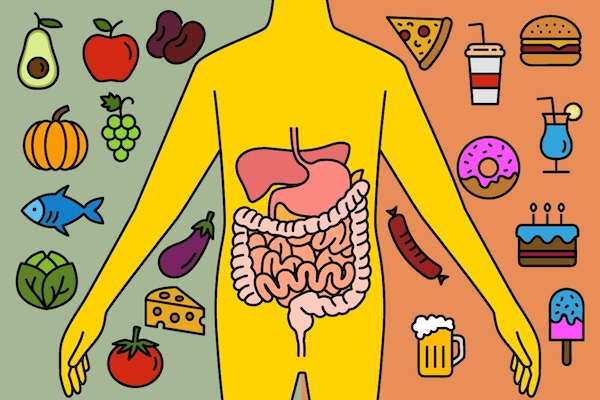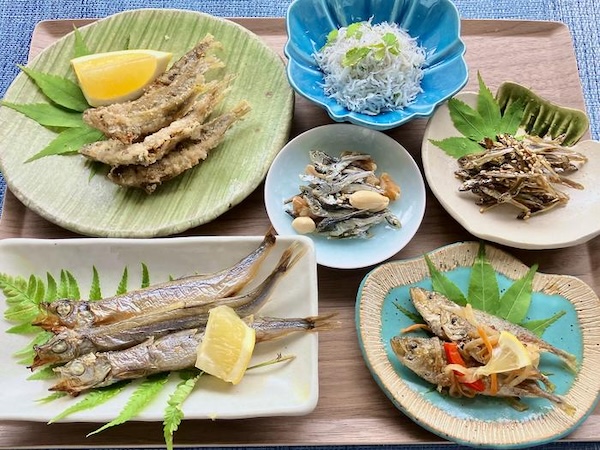Diet rich in omega-3s and fish oil supplements may slow prostate cancer growth and delay aggressive treatments in early-stage cases, study says

A new study led by UCLA Health Jonsson Comprehensive Cancer Center reveals that fish oil supplements may be key in slowing prostate cancer growth.
The findings, published in the Journal of Clinical Oncology, show that a diet low in omega-6 and high in omega-3 fatty acids combined with fish oil supplements significantly reduced the growth rate of prostate cancer cells in men with early-stage disease.
“This is an important step toward understanding how diet can potentially influence prostate cancer outcomes,” said Dr. William Aronson, Professor of Urology at the David Geffen School of Medicine at UCLA and first author of the study. “Our findings suggest that something as simple as adjusting your diet could potentially slow cancer growth and extend the time before more aggressive interventions are needed.”
Many men with low-risk prostate cancer opt for active surveillance, but within five years, about 50 percent require treatment, such as surgery or radiation. As a result, patients seek ways to delay therapy, including through dietary changes and supplements. However, specific dietary guidelines in this area have yet to be established. While other clinical trials have explored the effects of increased vegetable intake and healthy diet patterns, none have shown significant benefits in slowing cancer progression.
In the study, participants in the intervention group received personalized dietary counseling from a registered dietitian, either in person, through telehealth or by phone. They were guided to choose healthier, lower-fat alternatives and reduce omega-6-rich foods like processed items. The goal was to balance omega-6 and omega-3 intake, and participants were also given fish oil supplements. The control group received no counseling or supplements.
Pesco-vegetarian diet offers best health protection for elderly, study finds
Researchers tracked changes in the Ki-67 index, a biomarker indicating cancer cell multiplication, and collected biopsies at the study’s outset and after one year using an image fusion device to pinpoint cancer sites. The results were striking: the intervention group saw a 15 percent decrease in the Ki-67 index, while the control group experienced a 24 percent increase.
“This significant difference suggests that the dietary changes may help slow cancer growth, potentially delaying or even preventing the need for more aggressive treatments,” said Aronson.
While promising, the study found no changes in other cancer growth markers, like Gleason grade. Researchers caution that more studies are needed to confirm the long-term benefits of omega-3s and omega-6 reduction, advocating for larger trials on dietary impacts on cancer progression and survival in men on active surveillance.
Now that you've reached the end of the article ...
… please consider supporting GSA’s mission to advance responsible seafood practices through education, advocacy and third-party assurances. The Advocate aims to document the evolution of responsible seafood practices and share the expansive knowledge of our vast network of contributors.
By becoming a Global Seafood Alliance member, you’re ensuring that all of the pre-competitive work we do through member benefits, resources and events can continue. Individual membership costs just $50 a year.
Not a GSA member? Join us.
Author
Related Posts

Intelligence
Omega-3 fatty acids linked to reduced cancer risk, highlighting potential benefits of fish oil
A new study found that higher omega-3 and omega-6 levels in fish oil may lower the risk of up to 19 types of cancer.

Intelligence
Fish-rich diet may cut risk of cancers and rheumatoid arthritis
Three new studies show eating more fish, alongside other healthy foods, may cut the risk of gastrointestinal cancers and rheumatoid arthritis.

Intelligence
Eating small fish whole can prolong life expectancy, Japanese study finds
Study finds that regularly eating small fish whole significantly reduces the risk of death from all causes and cancer in Japanese women.

Responsibility
Can swapping red meat for a ‘forage fish’ diet save lives?
A study says adopting a forage fish diet could prevent up to 750,000 deaths from diet-related disease in 2050 and benefit the Global South.



